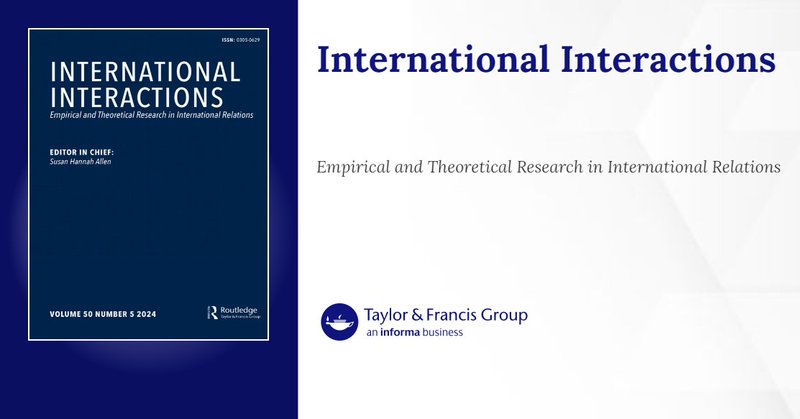
Peter G. Klein
@petergklein
Followers
14K
Following
26K
Media
1K
Statuses
15K
Professor at @Baylor_Business and @NHHnor, research fellow at @Mises, writing on organizations, entrepreneurship, strategy, and economics.
Joined March 2009
Now published! Pick up a copy from your favorite bookseller.
hachettebookgroup.com
A manifesto on managers and hierarchy that bucks the trend of the lean, flat, leaderless organization As business struggles to adapt to a rapidly changing wo...
2
11
92
Large-scale survey of employees at firms that reduced management layers finds that flattening the hierarchy brought many problems.
1
1
8
Bottom line: if central banks are not, in reality, independent, and leadership appointments are already politicized, then the issue is what level of politicization is acceptable, how this can be assessed and controlled, and what institutional arrangements should be preferred. 9/9.
0
2
8
Academics are entitled to political opinions - I certainly believe I am! - and Lisa was active on social media and other venues before her appointment, expressing opinions that, by normal measures, would be considered politically partisan. Was she appointed for this reason? 8/.
1
1
5
Her academic specialty is economic history (with a focus on race), not monetary economics or bank regulation, nor did she have professional banking experience. She was confirmed by a party-line, 51-50 senate vote (with Kamala Harris casting the tiebreaker). Was this political? 7/.
1
1
6
Second, if the presidential authority to remove a Fed governor constitutes politicization, then what about the authority to appoint a governor? Lisa Cook's appointment was controversial and, arguably, based on politics rather than technocratic expertise. 6/.
1
1
9
And here is a newer attempt, using a different approach, by the same authors (Dincer and Eichengreen). 5/
1
1
5
De facto independence, which has been measured in several ways, also differs across and within countries. This 2014 paper includes a pretty comprehensive review of the literature on independence and transparency. 4/
1
1
6
This review of de jure independence, based on statutes and legal rules, finds wide cross-sectional and time-series variation. Central banks - even quasi-private ones like the Fed - are part of the state and subject to political control to some degree. 3/
tandfonline.com
This article introduces the most comprehensive dataset on de jure central bank independence (CBI), including yearly data from 182 countries between 1970 and 2012. The dataset identifies statutory r...
1
2
7
I suggested above that independence has costs as well as benefits. Here I want to focus on the other assumptions. First, the political economy literature treats central bank independence - de jure or de facto - as a variable, not a constant. Some banks are already politicized. 2/.
1
1
7
Back to this topic. Almost all the commentary on Trump and Lisa Cook rests on three assumptions: central bank independence is the sine qua non of monetary policy, central banks are in fact independent, and the president removing a governor threatens that independence. 1/.
8
11
38
"We are pleased to inform you your manuscript has made it past our desk-rejection stage".
0
0
7
RT @mises_media: On the latest #HAPod, @PeterGKlein and @BobMurphyEcon discuss the @Mises Institute's new book, Hayek for the 21st Century.….
0
11
0
Josh's paper integrates a Grossman-Hart style model of ownership into a broader market framework. Lots of provocative ideas. More detailed commentary forthcoming!.
0
0
1
The best-known general equilibrium analysis of entrepreneurship (Kihlstrom and Laffont, 1979) focuses on differences in risk preferences among entrepreneurs and employees, without considering the entrepreneur's residual decision-making role.
1
0
2
Re-upping this thread on state-owned enterprises now that the US President is getting into the game.
Instead of cherry-picking our favorite anecdotes, we could look at the vast academic literature on state-owned enterprises, nationalization and privatization, and comparative economic organization. There is a clear consensus that SOEs underperform, but with important caveats. 1/.
2
9
39









